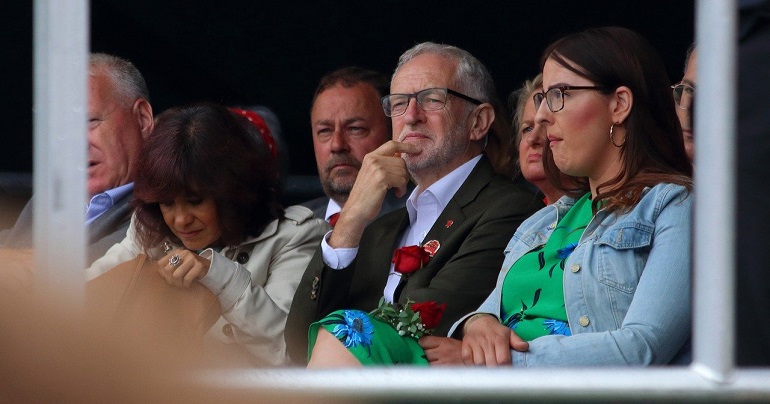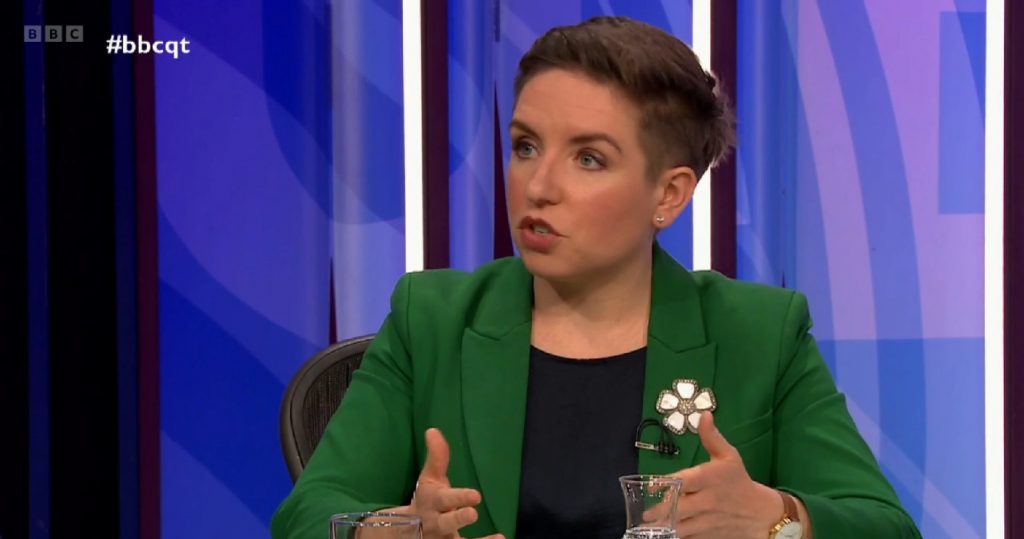Where next for the green left after Corbyn?

Keir Starmer’s victory is bluntly put a set back for the left. Since 2010, politics has been transformed with the once dominant neoliberalism of figures like Tony Blair, apparently, on the retreat. We have seen the rise of the SNP in Scotland, the Green surge of 2015 and, of course, the election of Jeremy Corbyn as Labour leader. All three were manifestations of an appetite for a more radical politics, Starmer’s victory looks a shift for Labour closer back to its pre-Corbyn politics.
Starmer cannot be seen simply as a Blairite right winger and the various challenges to neoliberalism can be debated. The position of the SNP on the left is perhaps particularly easy to challenge. Nonetheless, the apparent wave which has moved centre left parties further to the left has been seemingly broken. So where next for those of us on the left?
For personal reasons – I worked with Starmer back in the 1980s, when we were both involved in Socialist Self-Management – my feelings about him are mixed. Much of the British establishment have reacted with joy to his win, proclaiming the death of Corbynism. However I remember him when he was a radical and – at least on paper – his commitment to ending austerity, the Green New Deal and the repeal of trade union laws, remains.
I don’t think we are going back to Labour as a party of wars, fracking and punitive assaults on the poor. The worst of Labour MPs, I think of Angela Smith, have now gone. Angela Smith – not to be confused with the politician of the same name in the House of Lords – was a fracking enthusiast, who launched the failed Independent Group of centrist MPs, before disappearing into the Liberal Democrats. However, we have lost John McDonnell and others on the left from the opposition front bench.
But the appointment of Rachel Reeves, to the bizarrely named Chancellor of the Duchy of Lancaster indicates that I might just be wrong, about old terrible Labour, after all. Back in 2013 much to the apparent enthusiasm of the Guardian she proclaimed the Labour Party would be tougher than the Tories when it came to welfare.
Social media, perhaps not a reliable guide, is full of distraught socialists posting that they are leaving Labour. Starmer might be pushed in a left direction, indeed he ran on left policies to gain votes. But with Labour NEC candidates backed by right wing Labour groups like Progress winning over the weekend, this too looks unlikely.
The Labour Party has been – in the famous words of Tony Benn – ‘a party with socialists in it’ rather than a socialist party. It was formed not by enthusiastic followers of Marx and Engels, like most European social democratic parties, but by former Liberals. It has a legacy of supporting imperialism and has often been far from radical. The benefits of council housing, a welfare state and the NHS are not to be dismissed but this is a party inspired as much by Keynes than figures further to the left. Starmer in his ecosocialist days and Jeremy Corbyn embraced ecological politics, but traditionally the party has been – in the words of Harold Wilson – advocates of the ‘white heat of technological revolution’ rather than serious green policies.
So why not leave Labour and try something else. The depressing truth is that all options for the left look blocked. I am convinced as a former member, and principal speaker, that it is not a matter of simply joining the Green Party. Without proportional representation (PR), Green electoral opportunities look limited. However with PR things would be far from straightforward, the massive pressure a 24/7 war with the media would also face any Green Party that was on the left. Indeed in Europe, most Green Parties have moved to the centre of politics. Worryingly the Austrian Greens are in coalition with a far right party, agreeing to anti-migrant policies in return for compromises on climate change.
The British far left in its various guises does not look like an effective choice either. Groups like RS21 challenging the left to leave Labour look unlikely to make a break through.
It is easy to see what doesn’t work and to continue with the same political activism in an unreflective way. It is also easy to proclaim one’s own truth and dismiss alternative views. My feeling is that the Labour left need to stick with the party. Years ago, when I was Green Party principal speaker, and later international coordinator, I had the pleasure of working with Jeremy Corbyn and John McDonnell, but never thought they would get anywhere. They proved me spectacularly wrong. Whatever the challenges, the left is in a far, far stronger position in Labour than in the past. Jeremy Corbyn isn’t going away and the left in the party are those with ideas. It would be wrong in my view for those on the left to simply abandon Labour. Groups like Red-Green Labour and Labour for a Green New Deal do an excellent job.
I guess many reading this will disagree with my analysis. I have to respect that fact that the future is uncertain and there is no automatically best option for the left. I do hope we can agree on two particular considerations the need for strategic thinking and capacity building.
In any society the rich and the powerful work to conserve their wealth and influence, the left whether reformist or revolutionary are always going to face challenging and perhaps endless struggle. The important consideration is when deciding what part to play that we think carefully and do what we think is most strategic. Any strategy is more likely to work if our forces are strong. Capacity building is vital. I am most enthusiastic about the approach of base building and dual power. In the US groups like Philly Socialists, are not simply selling newspapers and recruiting cadres, they are organising tenants unions, setting up community gardens, engaging in practical work that builds real hope and organisational capacity. I would love to see this kind of approach take off over here. Groups like Teesside Solidarity, with its socialist clothes bank are inspiring.
Above all, we need to stop mourning and moaning, and keep organising. Whatever political choices we make, we need to keep intervening. Angela Davis, whose choice of membership of the American Communist Party would not be everyone’s, sums up the correct attitude ‘You have to act as if it were possible to radically transform the world. And you have to do it all the time.’




I joined the Green Party in March 2015, I’m happy to describe myself as a libertarian eco-socialist. I recognise that those of us who describe ourselves in similar ways are in a minority within the Green Party, however I agree with more than enough of both the policies and the overarching ecological perspective of the Green Party to be clear that it is by far ( as one of my sons, a non-member, put it) ‘the least worst of all the parties’. I agree with the comments above from Working Class Green. In South London over the time I have been a member, the Green Party has been actively involved in fighting the estate demolition that is being pushed through by the Labour council, joined a library occupation that had big community support, supported the Junior Doctors picket lines. In Lambeth we now have a group of Green councillors who fight on such issues – as well as environmental issues. Despite requesting that Corbyn et al came down to support the campaign to retain social housing they never did – and this in an area which has some of the highest memberships and increases in membership since 2015 of any CLPs in the country. The peak of the support the social housing campaign got from the local Labour parties was two wards passing motions in support. However when it came to the lobby of the council meeting that was due to decide on this Labour was not present. Whilst the labour left spent almost all its time on internal, ‘socialism from above’-style politics, pinning its hopes on Corbyn winning the election, the discredited and so-called revolutionary left forgot about the crucial element of self-emancipation. This is why a green ecological perspective offers the ‘least worst’ way forward and fits very well with the challenges we are now facing.
I agree with Derek about building capacity and doing community work. Especially as many of the people who do such work are of a conservative or an anarchist bent. Working with them will strengthen the left buy building its perspective.
Where he shows a narrow middle class perspective is to say the Green Party cant get anywhere. This fails to acknowledge the repellent authoritarian Labour councils we have in much of the North and probably the Midlands and Wales to. Neatly even under first past the post the Green Party has won seats on such councils and can win more. This both builds capacity and helps with community work. Also helps Labour as it always encourage them to raise there game locally. He is right that greens have drifted to the right but all left parties from social democratic to communits have either become authoritarian or innefective so it ducks big questions. Maybe everyone should do what they think. But if he sees Labour has his orbit now improving there council work should be there priority. But i say again more working class people will turn to the right if Labours local governement record is accepted uncritically and with out the challenge independ. left. Green and even liberal councilors.